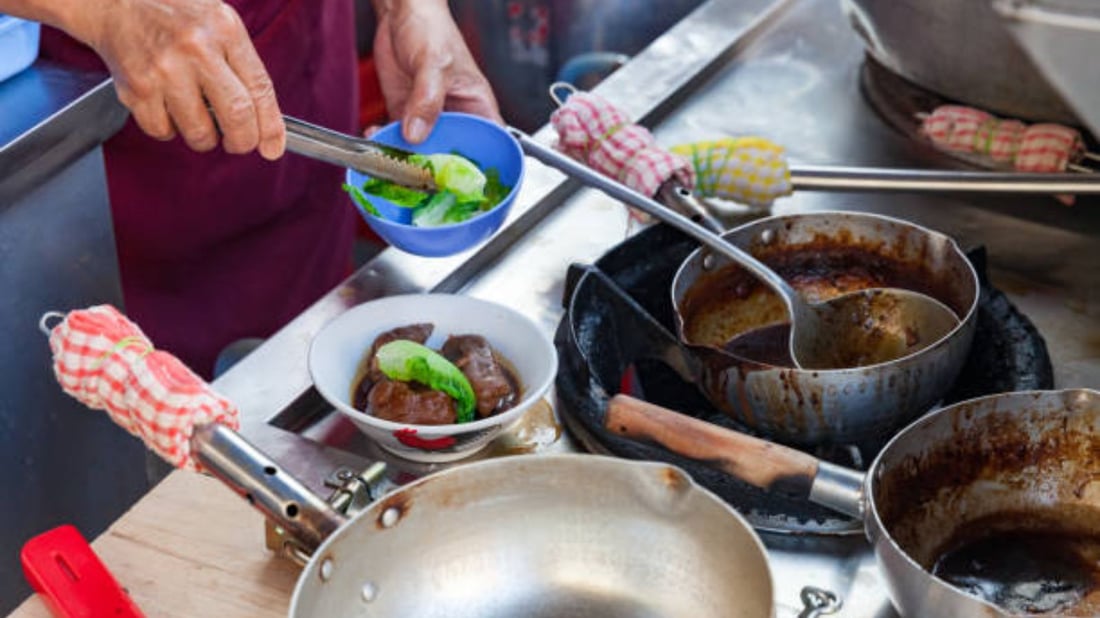Material Matters: Stainless Steel vs. Aluminum
When it comes to energy efficiency and environmental impact, the material of your cookware plays a significant role. Stainless steel cookware is durable and can last for many years, while aluminum cookware heats up quickly and evenly, reducing cooking time and energy consumption. Consider the environmental impact of each material before making your decision.
Non-Stick Coatings and Energy Efficiency
Non-stick coatings may make cooking and cleaning easier, but they can also be harmful to the environment. Look for cookware with eco-friendly non-stick coatings that are free from harmful chemicals like PFOA and PTFE. These coatings not only save energy by allowing food to cook faster, but also protect the environment.
Size and Shape: Choosing the Right Cookware for Energy Saving
Selecting the right size and shape of cookware can have a significant impact on energy efficiency. Use cookware that closely matches the size of your burner to prevent heat loss and ensure even cooking. Avoid oversized cookware that requires more energy to heat up.
Energy-Efficient Design Features
Look for cookware with energy-efficient design features such as thick bottoms for better heat retention, tight-fitting lids to trap heat and moisture, and ergonomic handles for easy handling. These design elements not only save energy during cooking but also contribute to the overall environmental protection.
Induction Compatibility: A Greener Choice
Induction cooktops are known for their energy efficiency, as they heat cookware directly using electromagnetic energy. Choose cookware that is compatible with induction cooktops for maximum energy savings and environmental protection. Induction-compatible cookware is also more versatile and can be used on a variety of stovetops.
Maintenance and Longevity: Eco-Friendly Cookware Care
Proper maintenance of your cookware can prolong its lifespan and reduce the need for replacements, which is beneficial for the environment. Follow care instructions provided by the manufacturer, avoid using harsh chemicals that can harm the environment, and opt for eco-friendly cleaning products.
Recyclability and Sustainability
When choosing high-efficiency cookware, consider the recyclability and sustainability of the materials used. Opt for cookware made from recycled materials or materials that are easily recyclable. Investing in sustainable cookware not only saves energy but also promotes environmental protection.
Energy-Saving Cooking Techniques
In addition to choosing high-efficiency cookware, adopting energy-saving cooking techniques can further reduce your environmental impact. Use lids while cooking to trap heat and moisture, cook with the right-sized pans to minimize energy waste, and utilize residual heat to finish cooking.
Investing in Quality Over Quantity
When it comes to high-efficiency cookware, quality should always take precedence over quantity. Investing in a few high-quality pieces that are energy-efficient and environmentally friendly is more beneficial than purchasing a large quantity of low-quality cookware that needs frequent replacements.
Environmental Certifications and Labels
Look for cookware that is certified by environmental organizations or labeled as eco-friendly. These certifications ensure that the cookware meets specific environmental standards and is produced using sustainable practices. Choosing cookware with environmental certifications is a step towards energy saving and environmental protection.
Quote Inquiry
Contact us!

